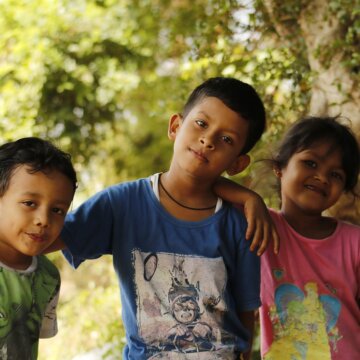- About
- Topics
- Picks
- Audio
- Story
- In-Depth
- Opinion
- News
- Donate
- Signup for our newsletterOur Editors' Best Picks.Send
Read, Debate: Engage.
| topic: | Child rights |
|---|---|
| located: | Brazil |
| editor: | Ellen Nemitz |
Over the last decades, Brazil has been presenting poor performances in the Programme for International Student Assessment (PISA), a result of low investments in education and extremely unequal conditions between different regions – something which has intensified by the online classes implemented due to the pandemic, as millions of students do not have access the internet. However, amid all the problems, the country is about to achieve a big step toward a better education system.
The legislation which defines the budget to education, known in its acronym Fundeb (which means a fund for maintenance and development of basic education), is about to expire at the end of the year, so a new version will need to to be created by deputies and senators. The Constitutional Amendment Proposal currently under evaluation turns the fund permanent, a breakthrough in the consolidation of constitutional rights. In addition, it raises the budget to invest in schools, teachers’ salaries and students – the cost by child or teenager would be increased by 61 per cent until 2026. It also improves the fair distribution of the money between cities and increases the federal government’s contribution from 10 per cent to 23 per cent in the same term.
These measures are still not enough if we consider the investment made by members of OECD (Organization for Economic Co-operation and Development). While more developed countries can spend over $10,000 per student, Brazil reaches less than half of this investment. Nonetheless, the National Campaign for the Right to Education considers them “a decisive step toward a proper financing of free and quality public basic education in the country.” In a statement published after the vote in the Congress, it is said that by “approving a hybrid system of resources distribution, deputies have heard the voices of millions of education professionals, students and activists.”
After being close to unanimous in the Congress, the chances of approval in the Senate are considerable. However, the challenges go further, considering the private schools' evasion and the hole in public accounts with the economic crisis caused by the pandemic. In a country with more than 200 million people, living in places as different as a big city and floating communities only reachable by boat, different cultures and ways of living, education is not just a matter of money, but a real intention of investing in people. Today, for example, it has been used in political purposes, as ideological speeches and electoral weapons – one example is School Without Party (Escola sem Partido, in Portuguese), a movement to attack a supposed influence to socialism or even determined sexual orientation and gender identification, one of the boosters of Jair Bolsonaro’s popularity.
On the other hand, education is also made by tireless teachers like Arthur Cabral, who is riding up to 8 kilometres every day to deliver printed material to students without internet during class suspensions, or José Jovino da Silva, who does the same in a motorcycle in the remote region of Tacaimbó, in Brazil’s Northeast. Fundeb’s approval is a great step, but we must remember that education is a daily and collective construction aiming to achieve the democracy and social justice we all deserve.
Image by Raman Talpada

